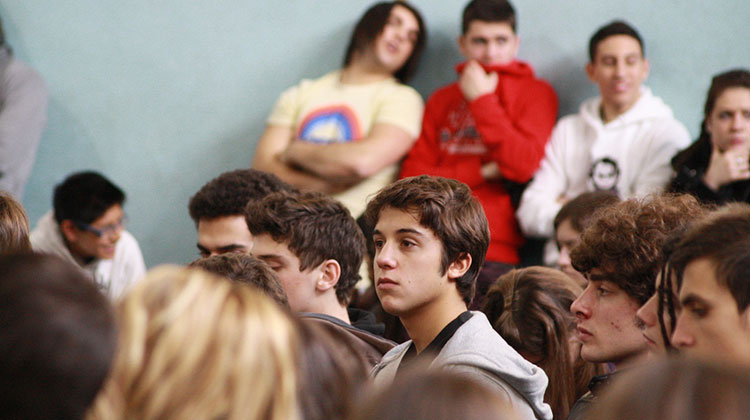
Today, the 12th of August, is “International Youth Day”. This growing generation has been given many names – from “Generation Y” and “Digital Natives” to “Generation Maybe”. Naturally all of these labels are mere approximations in the attempt to figure out a generation raised under entirely different political and media environments than those generations before it. Youth participation in elections throughout Europe has reached a historic low – a disconcerting trend. On this occasion we are shedding some more light on the youth’s relationship to democracy and elections.
The youth’s election fatigue
During the last European election in 2014, only 28 per cent of the youth authorised to vote (18 – 24 years old) went to the polls to cast their vote. The last Bundestag elections show a similar picture: Here, too, participation from young voters was lower than from the other generations. These are alarming facts. After all, the elected representatives also make political decisions that have a special effect on the future of young people.
A multitude of reasons
The blog DebatingEurope has asked youths in Europe for the reasons for the low voter participation figures. For example, one young Italian says he does not wish to vote because nothing will change with traditional democracy regardless. Another young adult questioned said that the internet, and thus new voting methods, offer particularly good possibilities for breaking through youths’ electoral fatigue. One example she named was the opportunities for direct democracy arising from online technology. She believes that the candidates to be appointed could already be determined online before the election. POLYAS supports these opportunities for digital democracy with university research cooperation, such as Liquid Democracy.
Introducing the youth to democracy
The President of the Youth of the European People’s Party (YEPP), Konstantinos Kyranakis, believes that young people should already be taking on more responsibility. The spokesman of the Federation of Young European Greens, Michael Bloss, also says in the DebatingEurope blog that a greater number of young politicians from “Generation Erasmus” would be good, as young people have a different perspective on issues and could introduce new ideas.
Youth Parliament elections are thus a good opportunity to introduce more young people to democratic processes and to allow them to participate in political decision. Since the 1980s, ever more municipalities have decided to establish and grant voting rights to youth councils in their local administrations. These representatives elected by young residents can represent their interests before the municipal council or the mayor at the communal level.
The work done by Juniorwahl is also proving to be very successful: Students are able to experience democracy first-hand in that simulated elections are contentually prepared and conducted in schools parallel to the major political elections within the state, the country and Europe.
Online elections: A voting system for the youth
Young people are often called Digital Natives: They use the internet in nearly all facets of life, share their experiences online and communicate online as well. Voting online is merely the next natural step. Past polls also accordingly show that around 65 per cent of young voters (18 – 29 years old) would vote online if they had the opportunity to do so. For the time being it can only be predicted that this may increase voter participation.
However, the trend is highly positive: Voter participation could be increased by up to 64 per cent for committee elections at universities that were held online through POLYAS. That makes this a good indicator for the affinity of young voters toward online elections. The Juniorwahl and various Youth Parliament elections have already been held online through POLYAS – likewise with great, positive resonance. Online elections not only meet the needs of young voters, but also come with many advantages for electoral organisers and administrators.